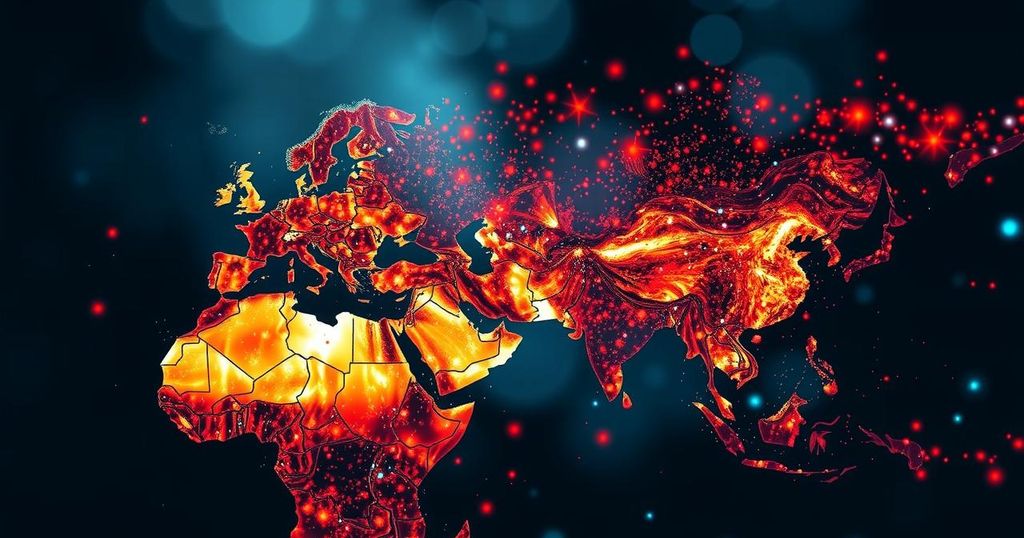The U.S.-brokered ceasefire between Israel and Hezbollah is now in effect, halting prolonged hostilities. In Bangladesh, a court has denied bail to Hindu leader Chinmoy Krishna Das Brahmachari on sedition charges, while Russia has expelled a British diplomat amid ongoing diplomatic conflicts.
The recently established ceasefire agreement, brokered by the United States, between Israel and Hezbollah took effect at 4 a.m. local time. This accord marks a significant pause in hostilities after nearly 14 months of conflict initiated by Hezbollah along the northern border. In a separate development, a Bangladeshi court has declined to grant bail to Chinmoy Krishna Das Brahmachari, a notable Hindu leader, who was apprehended on Monday on charges of sedition. Furthermore, the Russian government has expelled a British diplomat from its embassy in Moscow, reflecting ongoing diplomatic tensions. NDTV’s Arjun Samar Mahendran provides an update on these key international developments.
The ceasefire between Israel and Hezbollah is a pivotal event following an extensive period of conflict, which has significant implications for regional stability. The agreement aims to de-escalate tensions and prevent further military confrontations in the area. The arrest of Chinmoy Krishna Das Brahmachari highlights internal political strife within Bangladesh, as sedition laws have often been a point of contention. Additionally, the expulsion of the British diplomat from Russia underscores the strained relations between the United Kingdom and Russia, stemming from various geopolitical issues.
In summary, the implementation of a ceasefire between Israel and Hezbollah signifies a crucial step toward mitigating ongoing conflict in the region, while the legal troubles faced by a Bangladeshi leader reflect domestic unrest. Additionally, the expulsion of a British diplomat evidences the deteriorating state of international relations, particularly involving Russia. Together, these events illustrate the complex landscape of both regional conflicts and geopolitical tensions.
Original Source: www.ndtv.com






